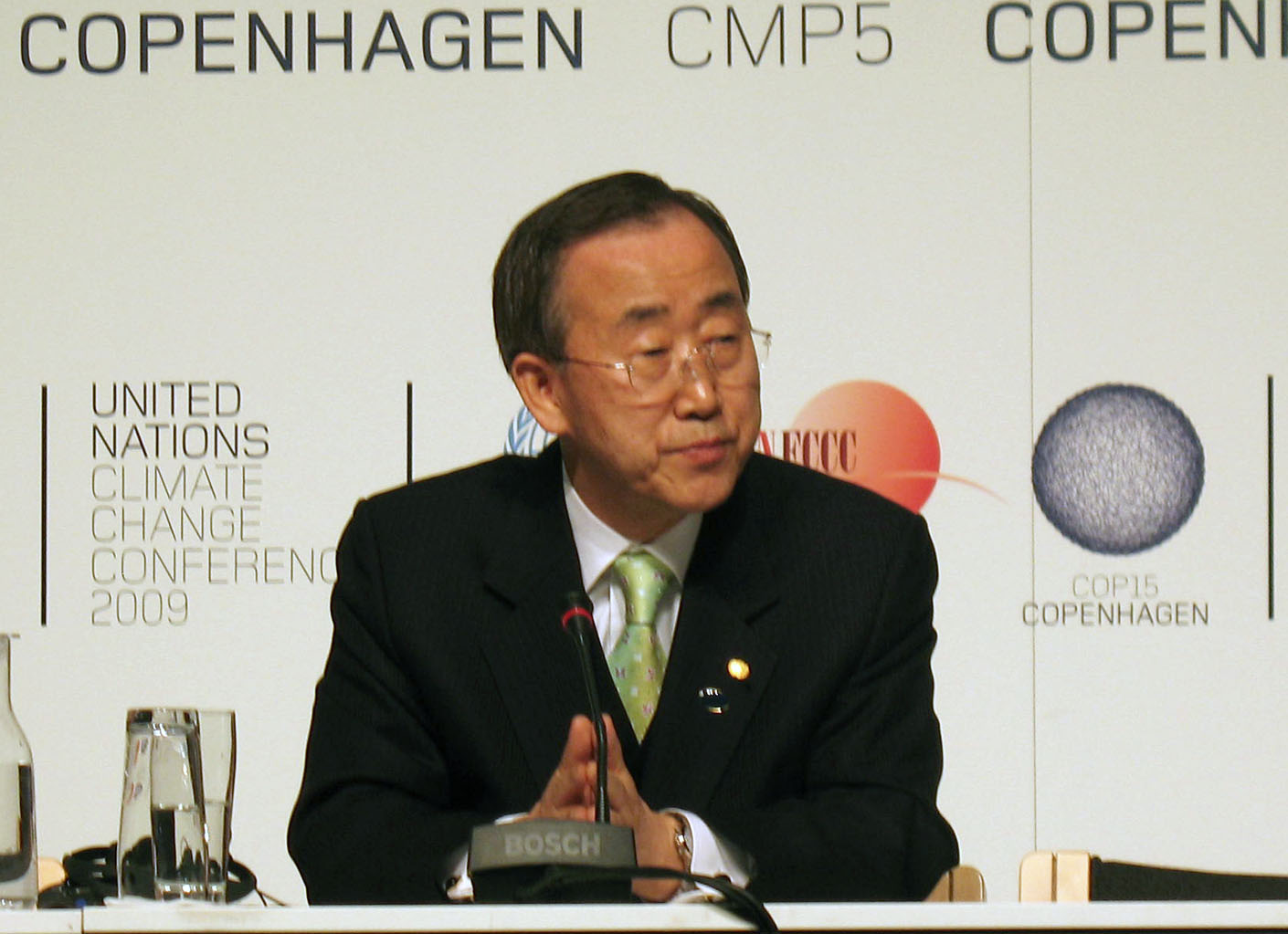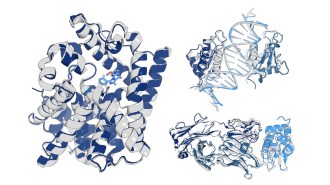Climate deal reached, importance debated
COPENHAGEN “Finally, we sealed the deal. And it is a real deal,” said United Nations Secretary General Ban Ki-moon this morning at an 11:15 press briefing. He was referring to a new climate accord – one aimed at reducing global greenhouse-gas emissions and setting up a green trust fund for mitigation and adaptation programs in the world’s poorest countries, ones that are already being hammered by a changing climate.

Ban had just stepped out of negotiations with the heads of state and negotiators attending the UN climate change conference where he had moments earlier brokered an eleventh hour save of the climate-negotiations process. Several nations were refusing to sign onto an accord, claiming it was too “flawed.” Among them: Venezuela, Cuba, Nicaragua and several small island states.
But Ban persuaded them that some deal, especially one that could target up to $10 billion a year in emergency adaptation funds starting in 2010 was a “good first step” as signatory nations continued to move toward crafting stronger, legally binding language in subsequent implementing documents.
The negotiators continued to meet in plenary session for another few hours, eventually endorsing the accord by consensus. Ban conceded that everyone would have preferred a “better” deal. Still, this would prove a satisfactory stop gap, he argued, and continue to drive global action on ratcheting down greenhouse gas emissions.
Meanwhile, a number of developing countries took umbrage at the idea they were being asked to endorse language that is not strong enough. Some, for instance, wanted a huge trust fund established – one far bigger than the $100-billion-a-year-by-2020 plan that Hillary Clinton proposed earlier this week (and which made it into the new accord) – to compensate poor nations for local climate change effects that have been triggered by greenhouse-gas emissions of the wealthiest countries. Many nations had also lobbied for the goal of keeping average global temperatures, for instance, from rising more than 1.5 oC above pre-industrial levels. The final document pledges only to try and keep temperature rise to “under 2o.”
That’s not nearly enough said some national leaders, such as Hugo Chavez of Venezuela and Sudanese ambassador to the United Nations, Lumumba Stanislaus-Kaw Di-Aping (who is also chairman of the G77). A global average increase of 2o would amount to an even higher warming in their regions of the world, science has suggested.
Which is why they threatened to shut the whole negotiating process down around breakfast time today. That they were persuaded to go along and “take note” of the new document was a major accomplishment, Ban said. “Take note.” What’s that. It’s something that the United Nations said today is legally equivalent to formally “accepting” the new document.
A few hours later, Yvo de Boer, executive secretary of the UN Framework Convention on Climate Change, offered a further explanation, noting that the phrase to “take note” is, in UN parlance, a means by which signatory nations can formally recognize the existence of some document without having to accept any or all of the provisions within it. In this case, it allows the new “accord” to move forward – at the same time giving the 193 nations represented at this meeting a few months to mull over, individually, whether they want to be part of it.
Overall, it is “an impressive accord,” de Boer contends. But he concedes that it also falls far short of what he and many negotiators had expected the accord to say, even six months ago.
For instance, he notes, the Copenhagen Accord, as the agreement is now being referred to, “is not an accord that is legally binding. Not an accord that at this moment pins down industrialized countries to individual [emissions reduction] targets. Not an accord that at this stage specifies what major developing countries will do [in terms of emissions]. It doesn’t even make clear how responsibilities for financing an agreed upon $30 billion climate-adaptation-and-mitigation program in poor countries will be divvied up amongst donor nations.
Indeed, its language is not very controversial – except for what is not in it.
Earlier drafts had suggested values for strong, mandatory greenhouse-gas emissions targets by industrialized nations. Those specific numbers are now gone. Earlier drafts would have required outside auditing of any emissions reductions, including within developing countries. Now countries can conduct their own audits. Earlier drafts had included the possible recommendation for striving to keep average world temperatures from rising more than 1.5 oC.
De Boer acknowledges that the language has been watered down (not his term) to make the document palatable enough for some 115 world leaders to endorse this weekend. His spin: “I think you have to recognize that what this [accord] has put in place is a letter of intent, an indication of a willingness to move forward” towards a legally binding treaty. To take place when? Perhaps within the next five or so years.






